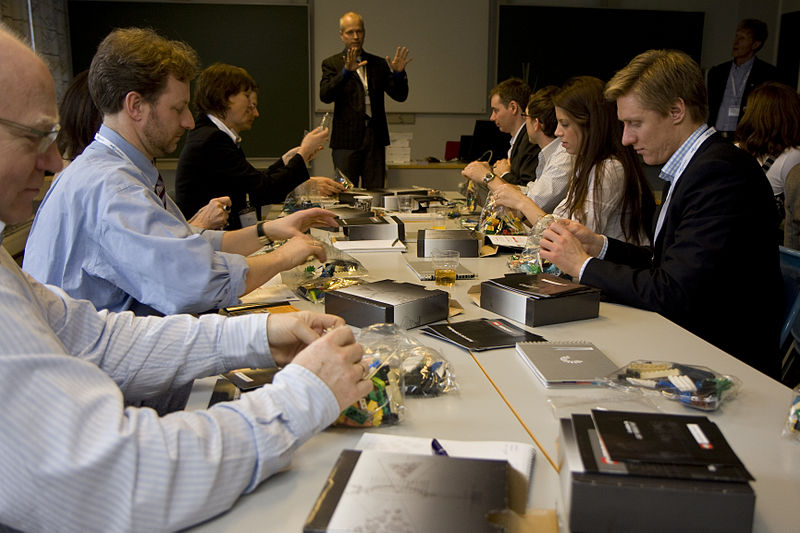The AIA Foundation, along with the American Institute of Architects (AIA) and the Association of Collegiate Schools of Architecture (ACSA), has announced the establishment of the AIA Design & Health Research Consortium to help fund basic research into the growing influence design has on public health.
The consortium will be comprised of like-minded university teams consisting of experts in architecture and public health. AIA Foundation and its partners will work with consortium members to identify and develop opportunities for funded research, publication, and other resources in design and public health, with the idea that coordination and collaboration will benefit the consortium, its partners and the design and health professions.
The AIA Foundation has set a deadline of October 15, at 11:59 pm PDT for receiving qualification proposals from interested academic institutions. Selection of the schools will be made by late November.
“In the last ten years, we have accepted that healthy places are sustainable places; that the optimal building of this century will be one that minimizes its ecological footprint while promoting human health and well-being,” said AIA Foundation Executive Director Sherry-Lea Bloodworth Botop. “This consortium will help lay the foundation for making this vision a reality.”
“Good design can improve our well-being, whether in our homes, schools, workplaces, or where we play,” said AIA CEO Robert Ivy, FAIA. “By careful consideration of the human condition and its surroundings, architectural design promotes well-being, mental health and performance.”
The launch of the consortium is the latest effort by the AIA Foundation and its partners to expand the growing body of research into the design and health nexus. In April, the AIA Foundation, AIA, and ACSA held a design and health-focused summit attended by more than 100 design and public health officials. In June, the AIA and McGraw-Hill Construction announced a ground-breaking survey on the attitudes of architects, public health officials and human resource professionals on whether design techniques can make a difference in improving the health of the American public.
The AIA has organized its design and health initiative around six evidence-based approaches that architects can influence through design practices and policies at the building and urban scale. These six approaches—environmental quality, natural systems, physical activity, safety, sensory environments, and social connectedness—recognize that the physical environment creates health opportunities and facilitates positive health behaviors. The AIA’s Design & Health Leadership Group (DHLG) has convened a research working group to manage the review of qualifications submitted by member candidates. Following an open request for qualifications, the working group will recommend up to ten members working across these six research areas.
Over a three year period, the AIA Foundation and its partners will provide institutional support and capacity building for inaugural consortium members to promote collaboration through local and national partnerships; enable the sharing of knowledge through private listserv activity, conference calls, and face-to-face events; and provide a new portal on AIA.org for Members to share research activity. Whenever appropriate, the AIA Foundation and its partners will promote the activities of the consortium with potential funders.
The full Request for Qualifications, application form, and other resources are available here.
Related Stories
Contractors | Apr 20, 2015
Too many construction projects don’t meet owners’ expectations: KPMG report
Causes for delays, overruns, and underperformance include project management talent shortages, distrust between owners and contractors, and the lack of fully integrated project management systems.
High-rise Construction | Apr 17, 2015
Construction begins on Goettsch Partners-designed Nanning China Resources Center Tower
The tower's design is derived from its multiple uses, which include 170,000 sm of Class A office space, 5,000 sm of boutique retail, and a 45,000-sm luxury Shangri-La hotel.
Museums | Apr 16, 2015
SANAA and Snøhetta tie at first place for Budapest museum bid
The two firms submitted designs for the New National Gallery and Ludwig Museum, one of five planned museums to be constructed in a park just outside the urban center of Hungary’s capital.
High-rise Construction | Apr 16, 2015
Construction begins on Seattle's Tibet-inspired Potala Tower
Construction on the 41-story Potala Tower in Seattle finally kicked off following a ground-breaking ceremony seven months ago.
Architects | Apr 14, 2015
Jeanne Gang, Bjarke Ingels among participants for inaugural Chicago Architecture Biennial
Some big names include Bjarke Ingels Group and Studio Gang Architects
Sports and Recreational Facilities | Apr 13, 2015
USTA breaks ground on what will be the country’s largest tennis complex
The 63-acre facility is being positioned as a cornerstone for a sports innovation and performance district in Lake Nona, Fla., a 7,000-acre master planned community that continues to expand.
Building Team Awards | Apr 10, 2015
14 projects that push AEC teaming to the limits
From Lean construction to tri-party IPD to advanced BIM/VDC coordination, these 14 Building Teams demonstrate the power of collaboration in delivering award-winning buildings. These are the 2015 Building Team Award winners.
Building Team Awards | Apr 10, 2015
Prefab saves the day for Denver hospital
Mortenson Construction and its partners completed the 831,000-sf, $623 million Saint Joseph Hospital well before the January 1, 2015, deadline, thanks largely to their extensive use of offsite prefabrication.
Building Team Awards | Apr 10, 2015
Anaheim’s soaring intermodal hub
Anaheim's Regional Transportations Intermodal Center is the largest ETFE project in North America.
Building Team Awards | Apr 10, 2015
Virtual collaboration helps complete a hospital in 24 months
PinnacleHealth needed a new hospital STAT! This team delivered it in two years, start to finish.

















